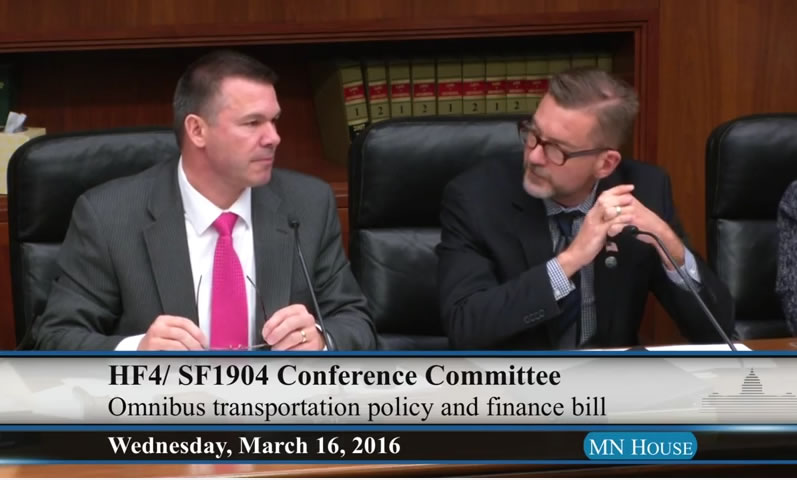

Share
Nine months after lawmakers failed to strike a deal on a long-term transportation funding plan the House and Senate conference committee tasked with the job met Wednesday for the first time during the 2016 session.
The committee walked through their differing versions of HF4, an exercise House and Senate transportation committee chairs Rep. Tim Kelly, R-Red Wing, and Sen. Scott Dibble, DFL-Minneapolis, said was intended to re-start the process of reaching a compromise.
“It’s our shared aspiration to have a package … that we can propose, as a conference committee, to our colleagues,” Dibble said.
The two sides folded a number of shared provisions into a lights-on transportation policy and finance law last spring. But House and Senate leaders failed to find a compromise on the larger issues, namely finding a way to fund a long-term boost in state transportation spending.
Agreement was hard to find, even, on what exactly should see an increase in funding: the Senate plan called for more dollars for metro area mass transit projects; the House plan did not, focusing its proposals on raising funds for road and bridge projects.
The Republican-backed House plan would raise an additional $7 billion for roads and bridges over the next decade in part by redirecting motor vehicle-related tax revenue away from the state’s General Fund, identifying efficiencies in the Department of Transportation budget, and utilizing some of the state’s projected $1.2 billion budget surplus.
Meanwhile, the DFL-backed package the Senate passed last spring proposes to raise roughly $11 billion for roads, bridges and transit by instituting a new gas tax and expanding a metro area transit-dedicated sales tax from one-quarter to three-quarters of a cent.
Legislative leaders on both sides of the aisle have said a transportation deal remains a high priority this session, which must end by May 23.
This article, written by Jonathan Avise, is reprinted from Session Daily, an online publication of the Minnesota Legislature.

